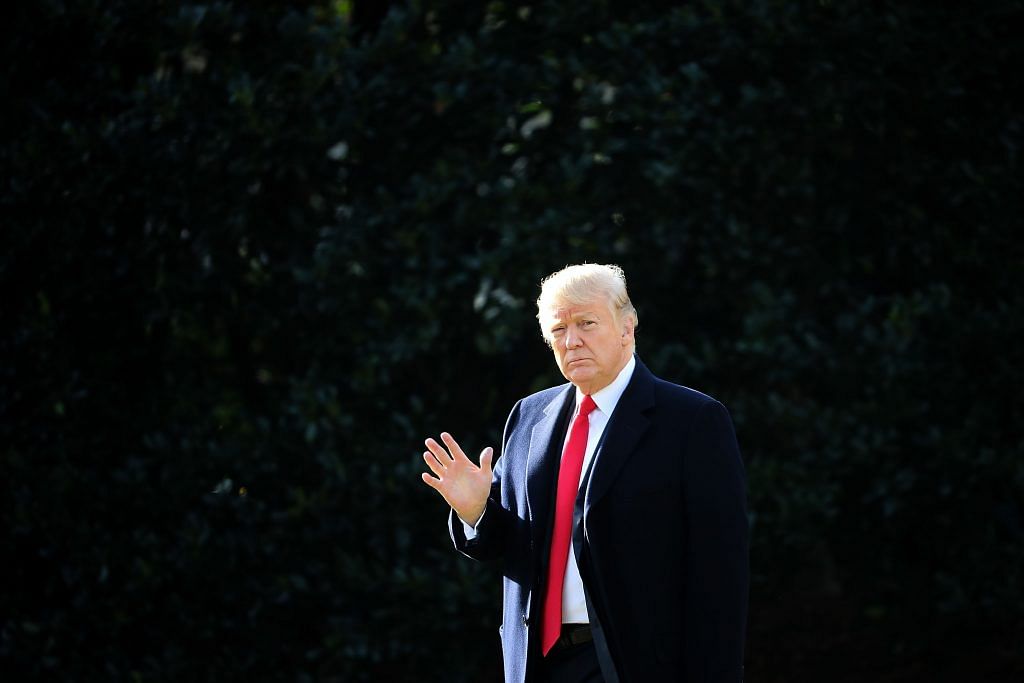Trump’s mistakes with North Korea
“Trump now has to prepare for the biggest negotiation of his life — even if he doesn’t have his new chief diplomat in place to help,” writes Michael McFaul in the Washington Post, referring to Secretary of State Rex Tillerson’s sudden firing.
“The fact remains that Trump made the right decision to pursue diplomacy rather than war to achieve nuclear disarmament in North Korea. His previous strategy of a “bloody nose” military conflict with the North offered little chance of achieving denuclearization and also risked pulling the United States into a major war on the Korean Peninsula. When compared with this dangerous alternative, Trump’s policy pivot must be welcomed.”
But diplomacy is hard work. “Trump’s first negotiating mistake was giving away for free something highly desired by Kim: a presidential meeting,” writes McFaul. “Trump’s second mistake was not securing interagency support for his gambit beforehand.”
His third mistake was to make the talks bilateral. McFaul writes that the dialogue would have been better with a country like China at the table. Trump also shouldn’t have set permanent denuclearization as a goal, because it certainly will not be met. He should not have disparaged the Iranian nuclear deal. Diplomacy is a team sport, McFaul writes, and Trump should have a diplomatic team in place. The riskiest move was to start these negotiations at the presidential level, when it probably would have been safer to have the negotiations at a lower level.
“None of these mistakes is fatal; most can be reversed. But the sheer number of them suggests that Trump needs to up his diplomatic game, learn more about the subject, invest more time into mapping out the multiple stages that will be needed to achieve success, and hire more people to help the cause. Trump has just launched the biggest diplomatic negotiation of his presidency and the biggest dealmaking moment of his life. No less than war and peace hang in the balance. Americans and the world need Trump to overcome his shaky start and succeed.”
Playing into Putin’s hands
“Accusations of a chemical weapon attack — and a major diplomatic crisis just days before a presidential election — might give some world leaders pause for thought. Not Vladimir Putin,” writes David M. Herszenhorn in Politico.
British Prime Minister Theresa May has given Russia an ultimatum over the attempted assassination of a Russian double agent on British soil, but Putin is only using it to demonstrate his own strength. The allegations have been dismissed as “a circus”, and Moscow has refused to give an explanation. The Kremlin went one step further, and said that Britain would have to comply with international norms and give them sample of the nerve agent and investigation details.
“But in the “Russia vs. the West” narrative that Putin has cultivated for political gain since returning to the presidency in 2012, May’s accusation is just one more page in a story the Russian public has been listening to for years. It’s Russia against the West in Ukraine. Russia against the West in Syria. Russia against the U.S. in the 2016 election,” writes Herszenhorn.
The latest polls show how popular Putin is in Russia, and while there are issues that could dent his public support, this particular accusation is not one of them, says Herszenhorn.
“Far from displaying any concern about the response from the West, which already has a battery of economic sanctions in place against Moscow, Putin is planning one last, big campaign rally — in Crimea, the very peninsula he annexed in 2014 in violation of international law. Could the message be any clearer that he has no fear of London or Brussels, let alone Washington?”
China is not a normal country
“China’s extraordinary growth over the past few decades has spawned two major lines of analysis. One school of thought holds that China is a rising economic power poised to conquer the world. The other argues that China’s economy has become so distorted that it is bound to collapse.” Both views are mistaken, writes Yukon Huang in the New York Times.
China has never been a normal economy, he writes — because what are perceived to be the Chinese economy’s weaknesses have been its strengths. “Unbalanced growth isn’t evidence of a looming risk so much as a sign of successful industrialization. Surging debt levels are a marker of financial deepening rather than profligate spending. Corruption has spurred, not stalled, growth.”
Huang concedes that China’s rising debt is a considerable issue, but he points out that China’s debt is public and not private. This means that the risks are largely borne by the state. “The borrowing is largely domestic, rather than external. And despite a surge in mortgages, Chinese households have a low overall debt burden compared to their counterparts elsewhere. For all its heady growth, China’s financial system also remains relatively simple, without the exotic securitization that nearly brought down the American economy a decade ago.”
“Eventually, China’s economy will have to become more balanced, as the government well knows. But the Chinese Communist Party’s plan for that is to have the state play the “leading” role in the economy while the market plays the “decisive” role in allocating resources. Squaring that circle can be tricky,” Huang writes.
“China’s remarkable success to date can be credited in part to its leaders’ willingness to set aside communism for pragmatism. Some observers worry that Mr. Xi is now reinjecting ideology into major policies, Mao-style. But he also is concentrating power and promoting action-oriented reformers like Mr. Wang and Mr. Liu — signaling his intention to address China’s social and economic needs even as he gathers the means to do so. China may not become a normal country for some time yet.”
